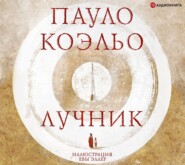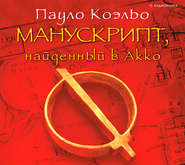По всем вопросам обращайтесь на: info@litportal.ru
(©) 2003-2024.
✖
The Fifth Mountain
Автор
Год написания книги
2019
Настройки чтения
Размер шрифта
Высота строк
Поля
“I told you that I’m poor. I barely have enough for myself and my son.”
“The Lord asked you to let me stay; He never abandons those He loves. Do what I ask of you. I will work for you. I’m a carpenter, I know how to work cedar; there will be no lack of something to do. This way, the Lord will use my hands to keep His promise: The barrel of meal shall not waste, neither shall the cruse of oil fail, until the day the Lord sendeth rain upon the earth.”
“Even if I wished to, I would have no way to pay you.”
“There is no need. The Lord will provide.”
Confused by the previous night’s dream, and even with the knowledge that the stranger was an enemy of the princess of Tyre, the woman decided to obey.
ELIJAH’S PRESENCE WAS SOON NOTICED BY THE NEIGHBORS (#ulink_b67df6b1-a912-51b5-b208-3b7ac0c1c329). People commented that the widow had taken a foreigner into her house, in disrespect of the memory of her husband—a hero who had died attempting to expand his country’s trade routes.
When she heard the rumors, the widow explained that he was an Israelite prophet, weary from hunger and thirst. And word spread that an Israelite prophet in flight from Jezebel was hiding in the city. A delegation went to see the high priest.
“Bring the foreigner to my presence,” he ordered.
And it was done. That afternoon, Elijah was led to the man who, together with the governor and the leader of the military, controlled all that took place in Akbar.
“What have you come here to do?” he asked. “Do you not know that you are our country’s enemy?”
“For years I have had commerce with Lebanon, and I respect your people and their customs. I am here because I am persecuted in Israel.”
“I know the reason,” said the high priest. “Was it a woman who made you flee?”
“In all my life, that woman was the most beautiful creature I have ever met, though I stood before her for only a brief moment. But her heart is like stone, and behind those green eyes hides the enemy who wishes to destroy my country. I did not flee; I await only the right moment to return.”
The high priest laughed.
“If you’re waiting for the right moment to return, prepare yourself to remain in Akbar for the rest of your life. We are not at war with your country; all we desire is to see the spread of the true faith, by peaceful means, throughout the world. We have no wish to repeat the atrocities committed by your people when you installed yourselves in Canaan.”
“Is killing prophets a peaceful means?”
“If you cut off a monster’s head, it ceases to exist. A few may die, but religious wars will be averted forever. And, from what the traders tell me, it was a prophet named Elijah who started all this, then fled.”
The high priest stared at him, before continuing.
“A man who looked much like you.”
“It is I,” Elijah replied.
“Excellent. Welcome to the city of Akbar; when we need something from Jezebel, we will pay for it with your head—the most important currency we have. Till then, seek out employment and learn to fend for yourself, because here there is no place for prophets.”
Elijah was preparing to depart, when the high priest told him, “It seems that a young woman from Sidon is more powerful than your One God. She succeeded in erecting an altar to Baal, before which the old priests now kneel.”
“Everything will happen as was written by the Lord,” replied the prophet. “There are moments when tribulations occur in our lives, and we cannot avoid them. But they are there for some reason.”
“What reason?”
“That is a question we cannot answer before, or even during, the trials. Only when we have overcome them do we understand why they were there.”
AS SOON AS ELIJAH had departed, the high priest called the delegation of citizens who had sought him out that morning.
“Do not concern yourselves about this,” said the high priest. “Custom mandates that we offer hospitality to foreigners. Besides that, here he is under our control and we can observe his steps. The best way to know and destroy an enemy is to pretend to become his friend. When the time comes, he will be handed over to Jezebel, and our city will receive gold and other recompense. By then, we shall have learned how to destroy his ideas; for now, we know only how to destroy his body.”
Although Elijah was a worshiper of the One God and a potential enemy of the princess, the high priest demanded that the right of asylum be honored. Everyone knew of the ancient custom: if a city were to deny shelter to a traveler, the sons of its inhabitants would later face the same difficulty. Since the greater part of Akbar had descendants scattered among the country’s gigantic merchant fleet, no one dared challenge the law of hospitality.
Furthermore, it cost nothing to await the day when the Jewish prophet’s head would be exchanged for large amounts of gold.
That night, Elijah supped with the widow and her son. As the Israelite prophet was now a valuable commodity to be bargained for in the future, several traders sent provisions enough to feed the three of them for a week.
“It appears the God of Israel is keeping His word,” said the widow. “Not since my husband died has my table been as full as today.”
LITTLE BY LITTLE ELIJAH BECAME PART OF THE LIFE OF (#ulink_1a6ce4fb-3a41-5611-b69c-fd6cfd72e633) Zarephath and, like all its inhabitants, came to call it Akbar. He met the governor, the commander of the garrison, the high priest, and the master glassmakers, who were admired throughout the region. When asked his reason for being there, he would tell the truth: Jezebel was slaying all the prophets in Israel.
“You’re a traitor to your country, and an enemy of Phoenicia,” they said. “But we are a nation of traders and know that the more dangerous a man is, the higher the price on his head.”
And so passed several months.
AT THE ENTRANCE TO THE VALLEY, A FEW ASSYRIAN (#ulink_e320209f-476f-5f64-9cfa-e48f83505247) patrols had encamped, apparently intending to remain. The small group of soldiers represented no threat. But even so, the commander asked the governor to take steps.
“They have done nothing to us,” said the governor. “They must be on a mission of trade, in search of a better route for their products. If they decide to make use of our roads, they will pay taxes—and we shall become even richer. Why provoke them?”
To complicate matters further, the widow’s son fell ill for no apparent reason. Neighbors attributed the fact to the presence of the foreigner in her house, and the widow asked Elijah to leave. But he did not leave—the Lord had not yet called. Rumors began to spread that the foreigner had brought with him the wrath of the gods of the Fifth Mountain.
It was possible to control the army and calm the population about the foreign patrols. But, with the illness of the widow’s son, the governor began having difficulty easing the people’s minds about Elijah.
A DELEGATION of the inhabitants of Akbar went to speak with the governor.
“We can build the Israelite a house outside the walls,” they said. “In that way we will not violate the law of hospitality but will still be protected from divine wrath. The gods are displeased with this man’s presence.”
“Leave him where he is,” replied the governor. “I do not wish political problems with Israel.”
“What?” the townspeople asked. “Jezebel is pursuing all the prophets who worship the One God, and would slay them.”
“Our princess is a courageous woman, and faithful to the gods of the Fifth Mountain. But, however much power she may have now, she is not an Israelite. Tomorrow she may fall into disfavor, and we shall have to face the anger of our neighbors; if we demonstrate that we have treated one of their prophets well, they will be kind to us.”
The delegation left unsatisfied, for the high priest had said that one day Elijah would be traded for gold and other rewards. Nevertheless, even if the governor were in error, they could do nothing. Custom said that the ruling family must be respected.
IN THE DISTANCE (#ulink_2812608a-2d2d-5003-a37b-99e7e1c89d47), IN THE MIDDLE OF THE VALLEY, THE tents of the Assyrian warriors began to multiply.
The commander was concerned, but he had the support of neither the governor nor the high priest. He attempted to keep his warriors constantly trained, though he knew that none of them—nor even their grandfathers—had experience in combat. War was a thing of the past for Akbar, and all the strategies he had learned had been superseded by the new techniques and new weapons that other countries used.
“Akbar has always negotiated its peace,” said the governor. “It will not be this time that we are invaded. Let the other countries fight among themselves: we have a weapon much more powerful than theirs—money. When they have finished destroying one another, we shall enter their cities—and sell our products.”
The governor succeeded in calming the population about the Assyrians. But rumors were rife that the Israelite had brought the curse of the gods to Akbar. Elijah was becoming an ever greater problem.
ONE AFTERNOON, the boy’s condition worsened severely; he could no longer stand, nor could he recognize those who came to visit him. Before the sun descended to the horizon, Elijah and the widow kneeled at the child’s bedside.
“Almighty Lord, who led the soldier’s arrow astray and who brought me here, make this child whole again. He has done nothing, he is innocent of my sins and the sins of his fathers; save him, O Lord.”

















